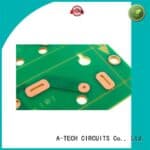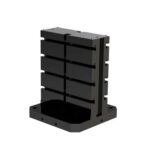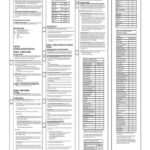What are DC Laboratory Bench Power Supplies?
DC laboratory bench power supplies are versatile instruments that provide adjustable and regulated DC voltage and current to power electronic circuits, devices, and equipment. These power supplies are designed to deliver stable and precise power output, making them ideal for testing, troubleshooting, and prototyping applications.
Key Features to Consider When Choosing a DC Laboratory Bench Power Supply
When selecting a DC laboratory bench power supply, there are several key features to consider:
1. Voltage and Current Range
The voltage and current range of a power supply determines the types of devices and applications it can support. Consider the maximum voltage and current requirements of your projects and choose a power supply that can accommodate those needs.
2. Regulation and Stability
A high-quality DC bench power supply should provide stable and regulated output, ensuring that the voltage and current remain consistent even under varying load conditions. Look for power supplies with low ripple and noise specifications to minimize interference with sensitive electronic components.
3. Display and User Interface
An easy-to-read display and intuitive user interface are essential for quick and accurate adjustments. Some power supplies feature digital displays, while others have analog meters. Consider the level of precision and ease of use that best suits your needs.
4. Protection Features
To safeguard your connected devices and the power supply itself, look for models that offer protection features such as overvoltage protection (OVP), overcurrent protection (OCP), and short-circuit protection (SCP). These features help prevent damage caused by unexpected power surges or accidental misuse.
5. Programmability and Remote Control
For advanced applications, programmable power supplies with remote control capabilities can be a valuable asset. These models allow you to automate testing procedures, log data, and integrate the power supply with other instruments using various communication interfaces such as USB, GPIB, or Ethernet.
Top DC Laboratory Bench Power Supplies in 2024
| Brand | Model | Max Voltage | Max Current | Key Features |
|---|---|---|---|---|
| Keithley | 2230G-30-1 | 30 V | 1 A | High precision, low noise, USB and GPIB interfaces |
| Tektronix | PWS4000 Series | 32 V | 20 A | Advanced protection, programmable, color touchscreen display |
| Rohde & Schwarz | HMP4040 | 32 V | 10 A | Arbitrary function generator, touchscreen, remote control |
| Siglent | SPD3303X | 32 V | 3.2 A | Dual-channel, high resolution, USB and LAN interfaces |
| B&K Precision | 9132B | 30 V | 5 A | Dual-range, analog controls, overvoltage protection |
1. Keithley 2230G-30-1
The Keithley 2230G-30-1 is a high-precision, programmable DC power supply that offers excellent performance and versatility. With a maximum output of 30 V and 1 A, this power supply is suitable for a wide range of low-power applications. Its low noise and ripple characteristics make it ideal for powering sensitive analog circuits and precision measurement equipment.
Key features:
– High accuracy and resolution
– Low noise and ripple
– USB and GPIB interfaces for remote control and programming
– Overvoltage and overcurrent protection
2. Tektronix PWS4000 Series
The Tektronix PWS4000 Series offers a range of high-performance programmable DC power supplies with advanced features and protection capabilities. With models offering up to 32 V and 20 A, these power supplies are suitable for demanding applications that require high power and precision.
Key features:
– Advanced overvoltage, overcurrent, and overpower protection
– Programmable output with sequencing and logging functions
– Color touchscreen display for intuitive operation
– Remote control via USB, Ethernet, and optional GPIB interface
3. Rohde & Schwarz HMP4040
The Rohde & Schwarz HMP4040 is a versatile, multi-channel DC power supply that combines a power supply with an arbitrary function generator. With a maximum output of 32 V and 10 A per channel, this power supply is suitable for a wide range of applications, from automotive testing to semiconductor characterization.
Key features:
– Four independent, electrically isolated channels
– Built-in arbitrary function generator for advanced waveform generation
– Touchscreen display and intuitive user interface
– Remote control via USB, Ethernet, and optional GPIB interface
4. Siglent SPD3303X
The Siglent SPD3303X is a compact, dual-channel DC power supply that offers excellent performance and value. With a maximum output of 32 V and 3.2 A per channel, this power supply is suitable for a wide range of general-purpose applications in labs, schools, and workshops.
Key features:
– Dual independent and electrically isolated channels
– High resolution and accuracy
– Overvoltage, overcurrent, and overtemperature protection
– USB and LAN interfaces for remote control and programming
5. B&K Precision 9132B
The B&K Precision 9132B is a reliable, dual-range DC power supply that offers both digital and analog controls. With a maximum output of 30 V and 5 A, this power supply is suitable for a variety of benchtop testing and prototyping applications.
Key features:
– Dual-range output for increased flexibility
– Analog knobs for quick and intuitive voltage and current adjustments
– Overvoltage protection and overtemperature warning
– Bright, easy-to-read LED display

How to Choose the Right DC Laboratory Bench Power Supply
Choosing the right DC laboratory bench power supply depends on your specific requirements and the types of projects you work on. Consider the following factors when making your decision:
- Determine the maximum voltage and current requirements of your applications.
- Consider the level of precision and stability needed for your projects.
- Evaluate the protection features and safety mechanisms offered by different models.
- Assess the user interface and ease of operation, especially if multiple users will be working with the power supply.
- Determine if programmability and remote control capabilities are necessary for your applications.
- Compare the price and value offered by different models and brands.
By carefully evaluating your needs and comparing the features of various DC laboratory bench power supplies, you can select the best model for your specific applications and budget.
Frequently Asked Questions (FAQ)
-
What is the difference between a linear and a switching DC bench power supply?
Linear power supplies use a transformer and linear voltage regulator to convert AC to DC, while switching power supplies use high-frequency switching and pulse-width modulation (PWM) to achieve the same result. Switching power supplies are generally more efficient and compact, but linear power supplies often have lower noise and better regulation. -
Can I connect multiple DC bench power supplies in series or parallel?
Yes, you can connect multiple DC bench power supplies in series to increase the voltage output or in parallel to increase the current output. However, it is essential to ensure that the power supplies are designed for series or parallel operation and that the maximum voltage and current ratings are not exceeded. -
How do I calibrate my DC bench power supply?
Calibrating your DC bench power supply involves comparing its output to a known, accurate reference and adjusting the power supply to match the reference. Many high-end power supplies have built-in calibration routines that can be performed by the user, while others may require professional calibration services. -
What is the difference between resolution and accuracy in a DC bench power supply?
Resolution refers to the smallest increment of voltage or current that a power supply can display or adjust, while accuracy refers to how close the displayed value is to the actual output. A power supply with high resolution may not necessarily have high accuracy, and vice versa. -
Can I use a DC bench power supply to charge batteries?
While it is possible to use a DC bench power supply to charge batteries, it is not always recommended. Batteries often require specific charging profiles and protection mechanisms that dedicated battery chargers provide. Using a DC power supply without proper precautions can lead to overcharging, overheating, or damage to the battery or power supply.
Conclusion
DC laboratory bench power supplies are essential tools for anyone working with electronic circuits, devices, or equipment. By understanding the key features and considerations when choosing a power supply, you can select the best model for your specific needs and applications.
The top DC laboratory bench power supplies in 2024 offer a range of features, including high precision, low noise, advanced protection, programmability, and remote control capabilities. Whether you are working on low-power analog circuits or high-power automotive systems, there is a DC bench power supply that can meet your requirements.
When making your decision, carefully evaluate your voltage and current needs, the level of precision and stability required, and any additional features that may be beneficial for your projects. By investing in a high-quality DC laboratory bench power supply, you can ensure reliable and efficient power delivery for your testing, troubleshooting, and prototyping applications.






Leave a Reply